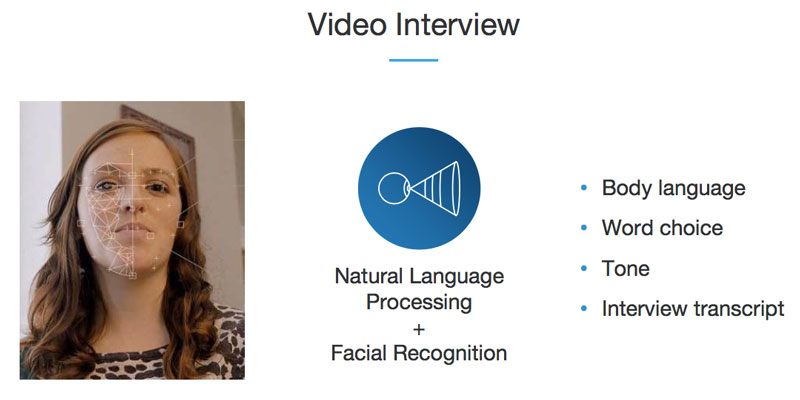

"Facial analysis has never been an independently and scientifically validated predictor of a person's ability, capacity or success in a role," said Merve Hickok, SHRM-SCP, a lecturer and speaker on AI ethics, bias and governance, former senior HR leader, and founder of Lighthouse Career Consulting in Ann Arbor, Mich. Zuloaga added that candidates were never evaluated based on "sensitive or personal" visual attributes.Īdvocates for more transparency in AI-technology use welcomed the news that HireVue, a leader in the space, had dropped facial analysis. "Even though in certain customer-facing roles there was a correlation between facial muscle movements and job performance-where smiling might be important, for example-most of the time that information wasn't necessary." "Our research shows that a lot of the time what people say and what their face does align closely," she said. "Over time the visual components contributed less to the assessment to the point where there was so much public concern to everything related to AI that it wasn't worth the concern it was causing people," said HireVue CEO and Chairman Kevin Parker.įacial muscle movements, like furrowing one's brow or smiling, were previously evaluated, explained Lindsey Zuloaga, the chief data scientist at HireVue.

It analyzes various characteristics of the video interview, including applicants' responses, speech and, until last year, facial expressions. HireVue's software assesses the applicant's suitability for a role and is meant to reduce individual human interviewers' intrinsic biases when rating candidates. The structured interviews are typically based on a customized job analysis of the role and ask job applicants to respond to a series of questions in a recorded video.


The product is most often used as an automated screening tool at the start of the hiring process for high-volume employers. HireVue's platform has hosted more than 19 million video interviews for over 700 customers worldwide. The Salt Lake City-based company said the controversial feature-which used algorithms to assign certain traits and qualities to job applicants' facial expressions in video interviews-was discontinued in March 2020 after internal research demonstrated that advances in natural language processing had increased the predictive power of language analysis and "visual analysis no longer significantly added value to the assessments." HireVue, a well-known video interview and assessment vendor, announced in January that it has removed the facial analysis component from its screening assessments as concerns about the transparent and appropriate use of artificial intelligence in employment decisions grow.


 0 kommentar(er)
0 kommentar(er)
